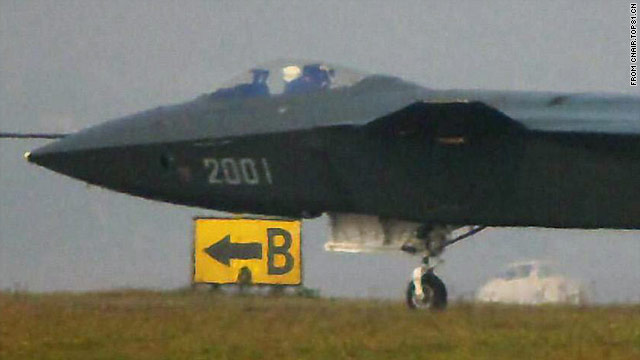 A jet fighter points up to the sky, a row of missiles line a walkway and revolutionary films are on constant rotation at
A jet fighter points up to the sky, a row of missiles line a walkway and revolutionary films are on constant rotation at These are the relics of the Asian giant's military past, but it is also a nod to the might worthy of an emerging superpower.
A red jet fighter catches my eye amid the Chairman Mao paintings: it is the MiG-15 credited with China 's first victory in the sky, shooting down an enemy aircraft over the skies of Korea
Now, the world's attention is focused on a new Chinese jet fighter, the J-20. Pictures of the radar-evading stealth plane have appeared in recent days, carrying out runway tests. It is the latest addition to China
Is China matching U.S. jet prowess?
The photos of the fighter come on the eve of a visit to Beijing China is developing the military might to go along with its economic strength, though Pentagon officials insist it does not mean China
At a briefing on Thursday, Chinese foreign ministry spokesman Hong Lei declined to comment on reports that China
"China China
Some analysts see an emerging power-play between the U.S. and China for influence in the Pacific and resource-rich Central Asia . To some, it is shaping up as a 21st century "Great Game," a modern replay of the 19th century struggle for empire between the giants of the time, Great Britain and Russia
"There's a dangerous dynamic emerging here," says Russ Moses, a long-time China China
Moses says there is intense competition within the Chinese defense force for power and money. Each arm of the military wants to establish its own supremacy and outbid the other. This comes at a time when China
All of this makes the U.S. , and regional powers like South Korea and Japan
"China
Still, walking around the discarded jet fighters and bombers, the missiles and relics of war at the aviation museum, it is clear that military might was essential to China
There are flashpoints: China 's support for North Korea , the status of Taiwan , disputed islands with Japan
"China is a rising power, and it is determined to challenge the American position globally," said China
No comments:
Post a Comment